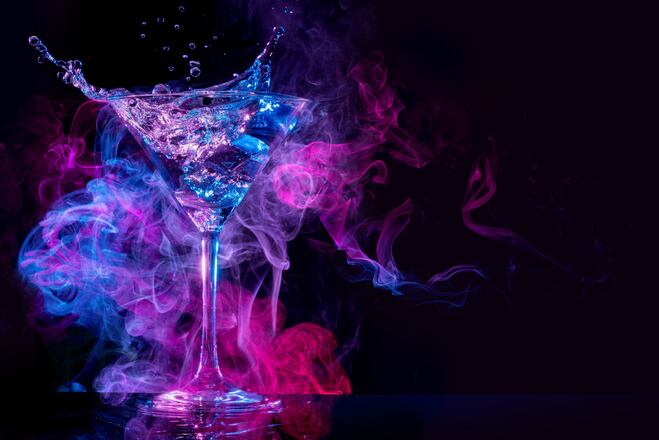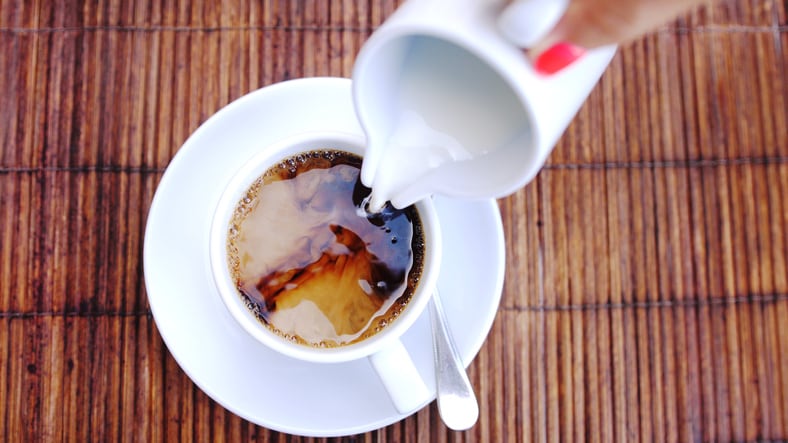The beverage development company sees an overarching trend among consumers of 'a more holistic view of health and wellness by supporting mental, physical and environmental health' - and trends in the beverage industry are set to reflect that.
Some of the trends of 2018 are set to continue to evolve over the coming years, including the use of ingredients like collagen, MCT oil, mushrooms and functional botanicals.
But the horizon for 2019 could also see increased emphasis on aspects like personalized functionality, new textures and nostalgia.
Hyper-personalized functionality
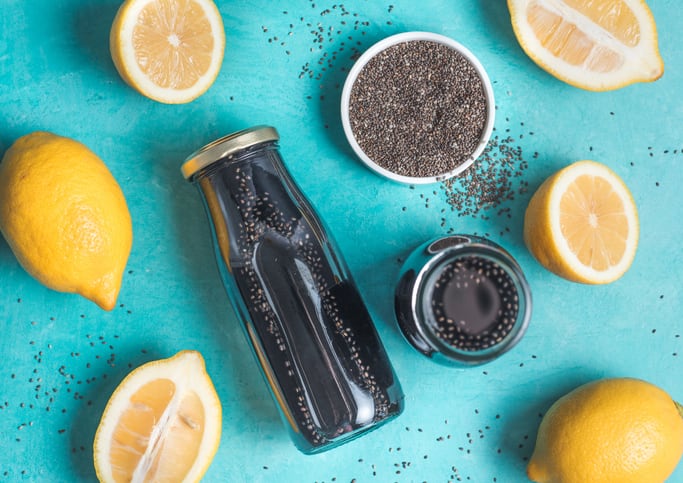
Consumers are increasingly drawn to functional beverages for the health benefits of packing superfood ingredients like turmeric, activated charcoal, matcha, melatonin and aloe vera into their drinks. It blends the beverage industry with vitamins and supplements, benefitting convenience and healthy grab-and-go options.
Moving forward, new launches will reflect consumer demand for overall wellness goals. According to Imbibe, “Improved sleep, energy, cognitive function, beauty, weight loss and gut health will be the most desired benefits, but expect products that support even more personalized needs like oral or cardiovascular health to launch as well.”
Meanwhile, CBD is set to become a popular ingredient in products across all beverage sectors. While a host of new launches using CBD have sprung onto the market in 2018, driven perhaps by the novelty value, 2019 will see interest focus on CBD as a functional ingredient. "CBD is suggested to aid with pain, nausea, seizures, anxiety and depression: which makes it an enticing functional ingredient."
Plant-based
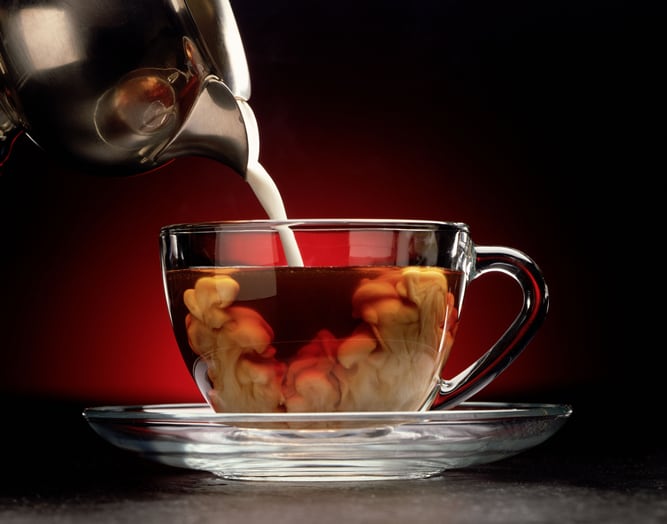
More people are adopting a flexitarian lifestyle, incorporating meat, dairy but also an increasing volume of plant-based products into their diet. Consumers hold the perception that plant-based products are healthier in moderation and more sustainable than their animal-based counterparts.
Plant-based product claims have grown 62% globally (CAGR 2013-2017) according to figures from NDP Group. And while interest in vegetarianism and veganism is increasing, 86% of people buying plant-based products are still meat-eaters.
The coffee space illustrates the plant-based trend, with plant-based creamers and ‘milks’ finding an audience among flexitarians. Datassential reports that 83% of people who use creamer in their coffee are at least interested in using plant-based creamers or ‘milks’ and 34% already use them often. Almond, soy and coconut-based beverages lead the category with niche options like peanut, oat and flaxseed gaining momentum.
Color and nostalgia
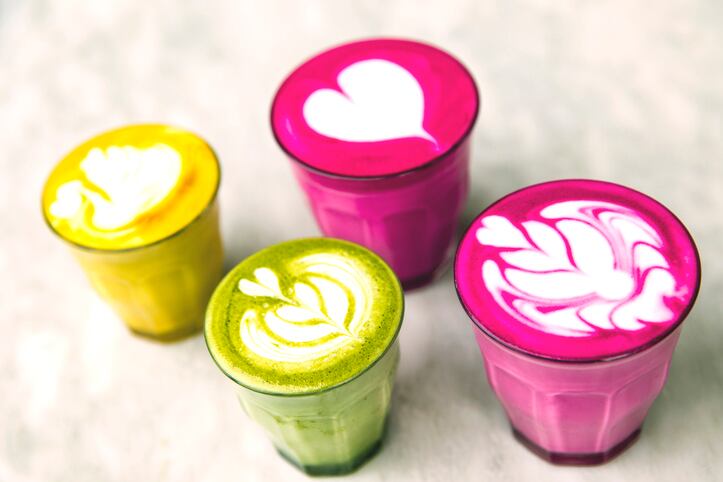
In terms of flavors and colors, consumers are looking for bright, bold hues. Young people have an eye for what foods and drinks succeed on social media, looking for products that are 'Instagram-friendly'.
Color and functionality collide with ingredients such as blue algae, beet, matcha, butterfly pea flower tea (a tea made with the dried flowers of the butterfly pea plant Clitoria ternatea, traditionally popular in south-east Asia) and purple tea: products that are 'chock-full of health benefits' and also make beautiful Instagramable beverages.
"Butterfly pea flower tea will be the rising star of 2019 because it is high in antioxidants and naturally changes color from blue to purple when acidity is added to it," says Imbibe.
Nostalgia helps provide consumers with a respite from their busy, stressful lives. The trend has a combination of indulgent, sugar-laden flavors like cereal milk, s’mores, birthday cake, cookie dough, pumpkin spice, maple, eggnog and caramel apple. These, too, are often visually appealing and work well on social media.
Globally-inspired flavors
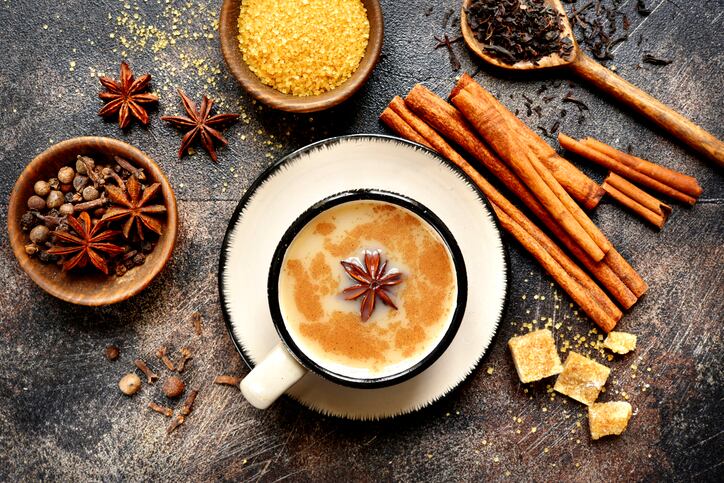
Consumers love feeling connected to other cultures, leading to a rise in ethnic flavors and ingredients found in beverage launches. Imbibe reports an average annual growth of 20% between 2013 and 2017 for spicy flavors like cardamom, ginger, Chinese Five Spice, cayenne, jalapeño, chili and habanero,
Indulgent beverages, cocktails, coffee, tea, juice and RTDs will all see an increase in these global inspirations. A few lesser-known flavors to watch in the drinks space are yuzu, Meyer lemon, blood orange and guava.
Texture
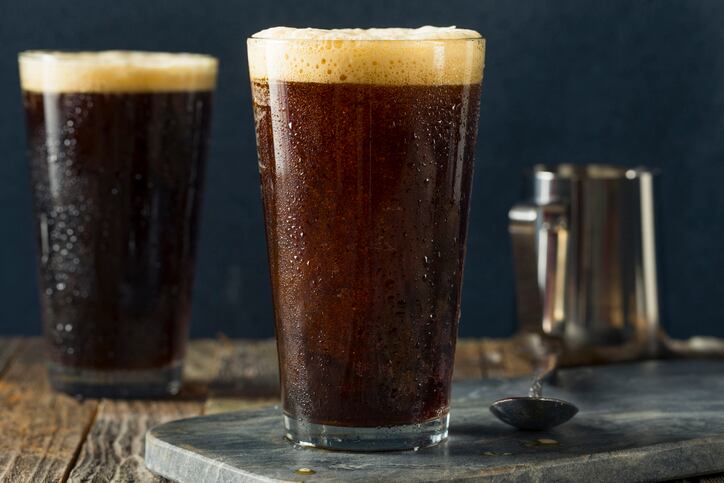
Brands are now paying more attention to the texture of their drink launches as well as flavor and formula. With the rise in RTD coffees, it’s been a difficult task to successfully replicate the frothy, foamy texture of a coffee shop beverage in a bottle or can. ‘Shake-it-up’ drinks that taste barista-brewed are now more common and also provide better complexity when compared to traditional CSDs.
Beyond coffee, carbonation, nitrogen-infusion and whipped textures are all carving out a larger corner of the beverage space in coffee, tea, juice, beer, pre-mixed cocktails and protein drinks. Imbibe reported a 16% increase in sensory claims on food and beverage products from 2013 to 2017.
Sustainability

Plastic has come under fire in 2018, but consumers' interest in sustainability is also much wider. Data from Nielsen and Mintel indicates that consumers will pay more for products that make claims on sustainability, while over in the beer category research shows that consumers are willing to pay more for sustainable brews.
The internet and social media are helping spread the message about sustainability and encouraging consumers to be more mindful about their purchases. "Expect more beverages with eco-friendly packaging as well as upcycled and fair-trade ingredients," says Imbibe.

